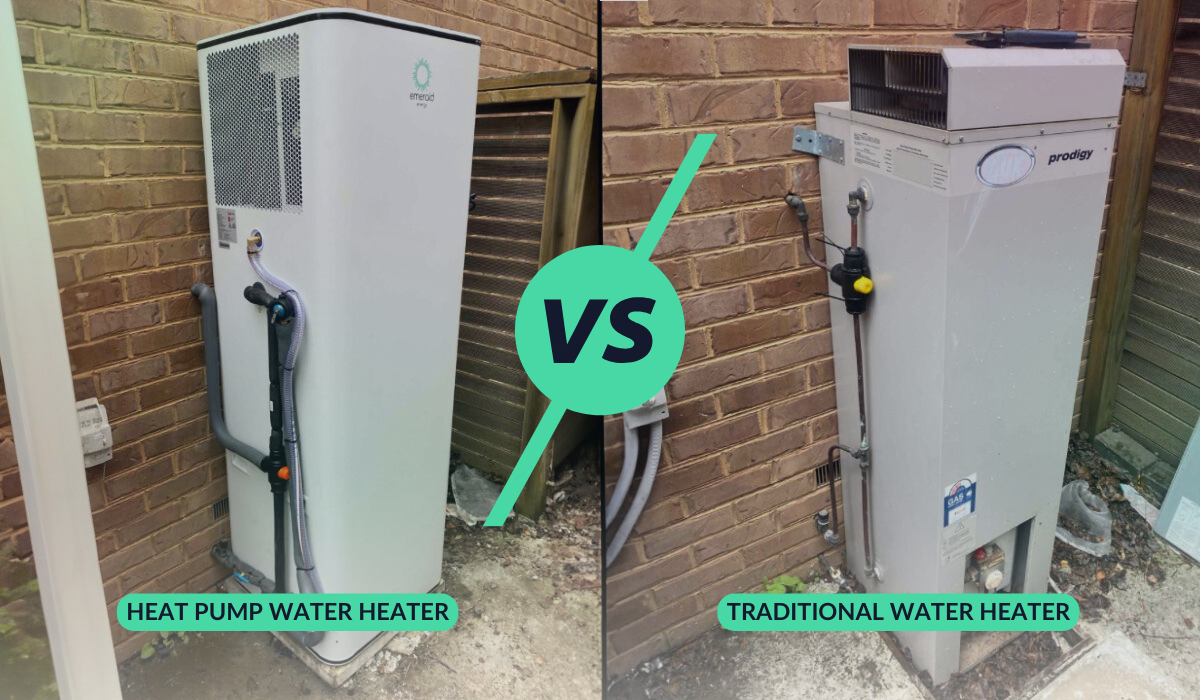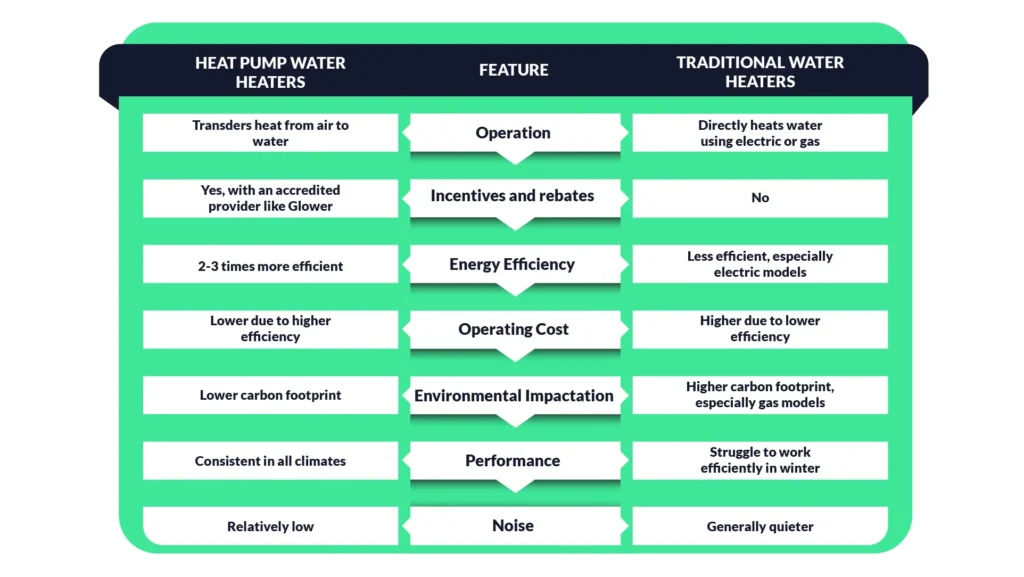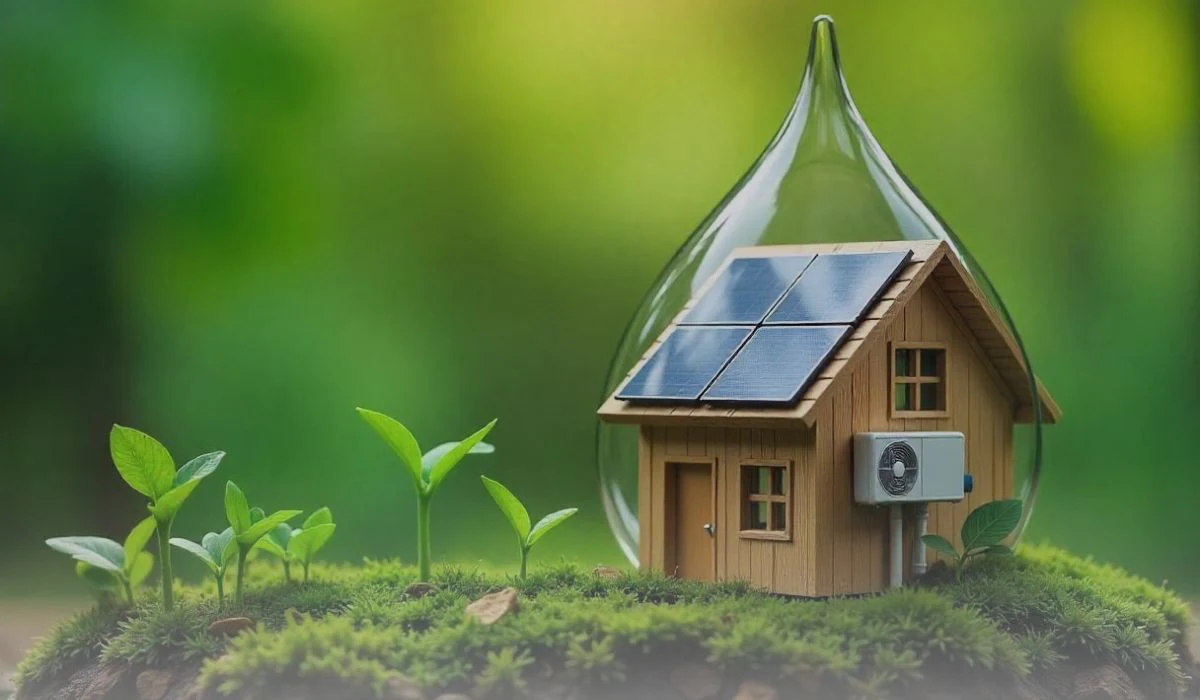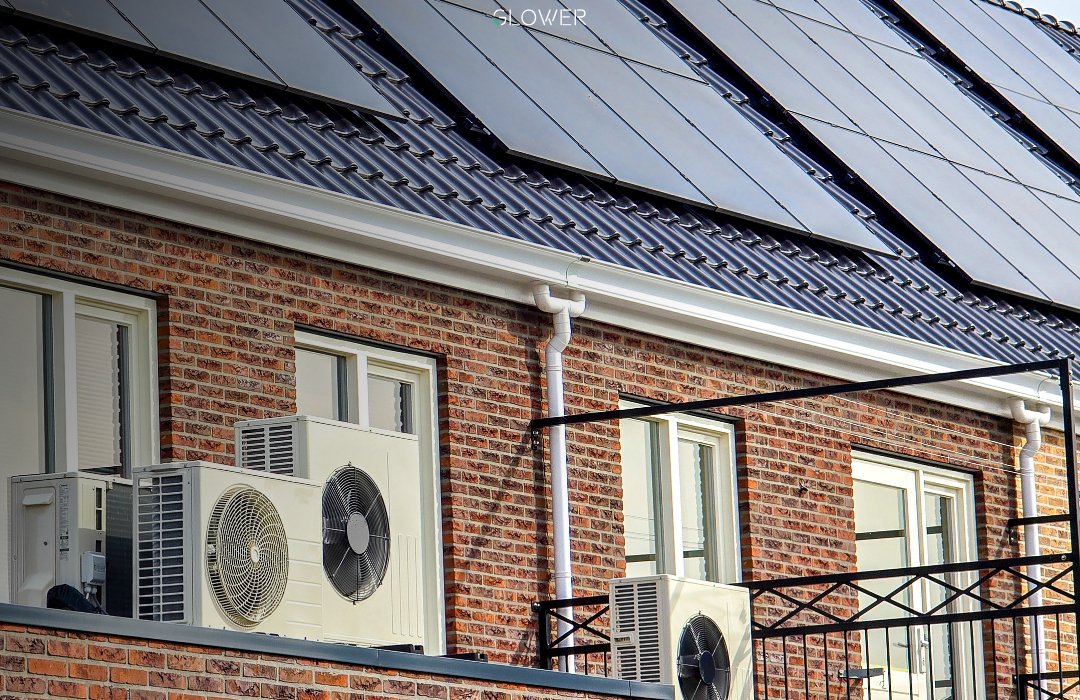When choosing the best hot water system for your home or business, you usually have two options. You can pick a heat pump water heater or a traditional water heating system. Both options have their advantages and drawbacks, and understanding these differences can help you make an informed decision. In this blog, we will look at the main differences between these two hot water systems. This will help you decide which one is best for you.
If you want free personalized assistance, contact Glower here 👆
1. How Each Hot Water System Works
Heat Pump Water Heaters operate differently from traditional hot water systems. Instead of generating heat directly, a heat pump extracts heat from the surrounding air and transfers it to the water in the tank. This process is highly efficient and can significantly reduce energy consumption.
A traditional hot water system heats water directly using electric elements or gas combustion. Electric systems use heating elements placed in water. Gas systems burn natural gas or propane to produce heat.
2. Energy Efficiency
Energy efficiency is a critical factor when choosing a hot water system. Heat pump water heaters are often 2–3 times more energy-efficient than traditional electric hot water systems. By moving heat rather than generating it, heat pumps consume significantly less electricity, resulting in lower utility bills.
3. Cost Considerations
The initial cost of a hot water system is an important consideration for many homeowners. Heat pump water heaters tend to have a higher upfront cost due to their advanced technology. However, the lower operating costs associated with their high efficiency can lead to significant savings over time. Additionally, heat pump systems may qualify for rebates or tax incentives, helping to offset the initial investment.
In contrast, traditional hot water systems are usually more affordable upfront. However, their higher energy consumption often results in increased operating costs, especially for electric models.
4. Environmental Impact
If you are concerned about their environmental footprint, the type of hot water system you choose can make a difference. Heat pump water heaters have a lower carbon footprint because they use less energy. This makes them a more sustainable option, particularly when paired with renewable energy sources.
Traditional hot water systems, especially gas-powered models, produce higher carbon emissions due to the combustion process. Electric systems can be cleaner, but their overall environmental impact depends on the energy source used by your utility company.
If you’re still unsure about which option to choose, you can make your comparison with this table:
Learn how you can electrify your home and save on your bills in our blog 👉 What does home electrification mean?






